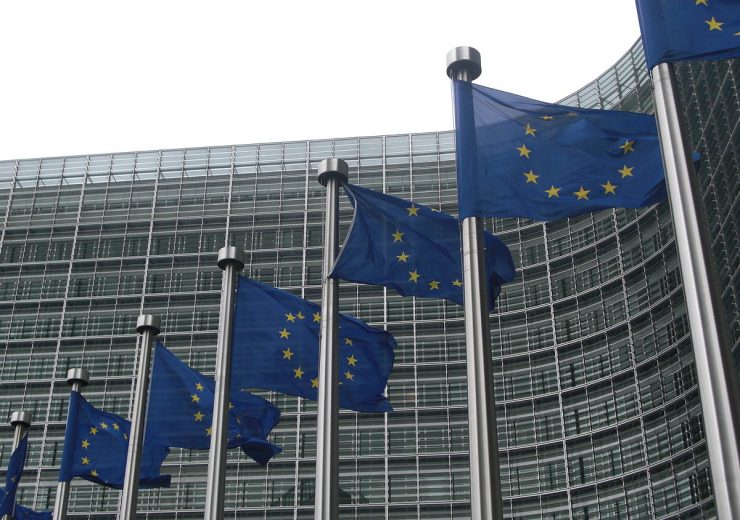The EC approval is based on the Phase 3 IKEMA study, which showed that Sarclisa plus standard of care reduced the risk of disease progression or death

Flags in front of the European Commission building in Brussels. (Credit: Sébastien Bertrand/Wikipedia.)
Sanofi has obtained the European Commission (EC) approval for Sarclisa (isatuximab) in combination with carfilzomib and dexamethasone (Kd), to treat a type of multiple myeloma (MM).
The regulatory approval indicated the Sarclisa combination for adult patients with MM who received at least one prior therapy, along with a standard of care (SC) regimen in less than 12 months.
In the EU, Sarclisa plus another SC regimen of pomalidomide and dexamethasone (pom-dex), was already approved for the treatment of relapsed or refractory MM.
Last month, the US Food and Drug Administration (FDA) approved Sarclisa in combination with Kd, to treat MM patients who received one to three prior lines of therapy.
Sanofi oncology and paediatric innovation global development head Peter C Adamson said: “The EC approval of Sarclisa in combination with carfilzomib and dexamethasone means patients living with multiple myeloma in Europe can now receive Sarclisa in combination with two standard of care treatment regimens.
“The carfilzomib and dexamethasone combination represents an important standard of care in Europe. The Phase 3 IKEMA trial’s finding that the addition of Sarclisa to this regimen reduced the risk of progression or death by nearly half formed the basis for this important EC approval.”
Sarclisa is a monoclonal antibody designed to work through multiple mechanisms of action to target a specific epitope on the CD38 receptor on MM cells.
The drug has been is approved in the EU, the US, Switzerland, the UK, Canada, Australia, Japan, Russia, the UAE, South Korea, Taiwan and Qatar, to treat relapsed refractory MM.
The EC approval is based on data from the Phase 3 IKEMA trial that enrolled 302 patients with relapsed MM in 69 centres across 16 countries.
In the study, Sarclisa combination therapy has reduced the risk of disease progression or death by 47% compared to standard of care Kd alone in patients with MM.
Progression-free survival (PFS) was the primary endpoint of the IKEMA trial, while secondary endpoints assessed the response for Sarclisa combination therapy versus Kd.
The secondary endpoints include overall response rate (ORR), complete response (CR), very good partial response (VGPR) and minimal residual disease (MRD)-negative response.
Most frequent adverse reactions include infusion reactions, hypertension, diarrhoea, upper respiratory tract infection, pneumonia, fatigue, dyspnea, insomnia, bronchitis, and back pain.
